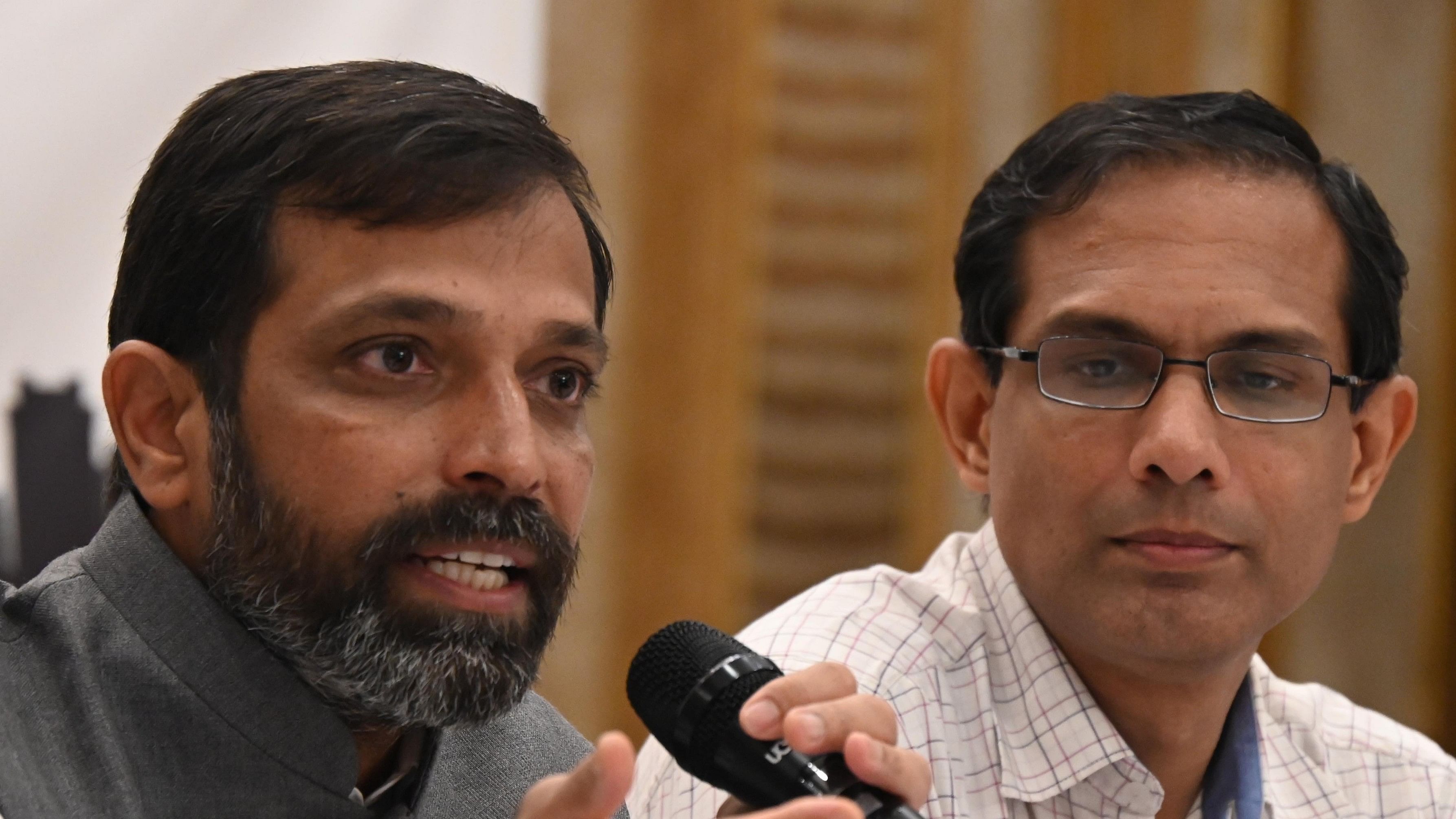
Santosh Nargund, Head, Participatory Governance, Janaagraha, and Srikanth Vishwanathan, Chief Executive Officer, during a press conference on the release of the report in Bengaluru on Saturday.
Credit: DH Photo/BK Janardhan
Bengaluru: Janaagraha, a Bengaluru-based nonprofit, released a report baring out lapses in decentralised governance in Karnataka's cities.
The report pored over the shortcomings in implementing the 74th Constitutional Amendment Act, which mandates local self-governance in towns and cities.
The city governments do not have full control over 15 of the 18 functions of local governance as mandated by the Constitution. There is an average delay of 22 months in municipal corporation elections, and a delay of two-and-half years in the formation of municipal councils and election of mayors/presidents of municipalities. Ten of the 11 city corporations in Karnataka do not have official ward committees. City governments exhibit poor transparency.
The report — entitled 'A Critical Review of Decentralised Participatory Governance in Cities of Karnataka' — also gave reforms such as devolution of all necessary functions to city governments and provision of adequate staff and resources, the timely conduction of elections of the city, before the expiry of the council term; election of the mayor and formation of the city council within 15 days of election results, and empowering the State Election Commission to conduct the delimitation of wards and reservation fixation.
It also called for improved and active citizen participation; the formation of ward committees within a month of the formation of the city council or announcement of election results, and more transparency and accountability from the city governments.
Santosh Nargund, Head, Participatory Governance, Janaagraha, said: "Karnataka was a leading state in decentralised local governance in the 1980s, but has seen a decline over the decades. Good governance such as timely elections, devolution of powers by the state to elected city governments, and people’s participation has serious implications on the economic and social development ambitions of the state, as well as on environmental sustainability. In the last two years, we have reached out to several city governments and communities across Karnataka to build awareness for improved urban governance."